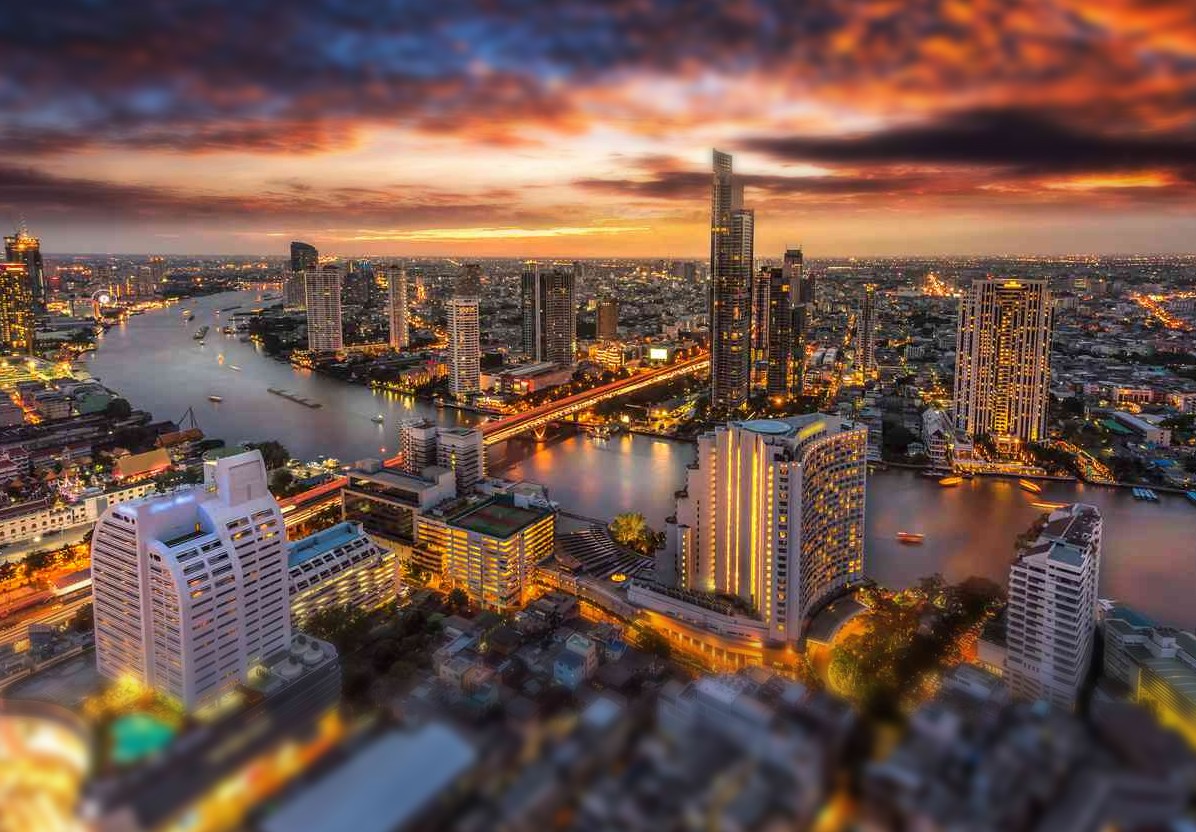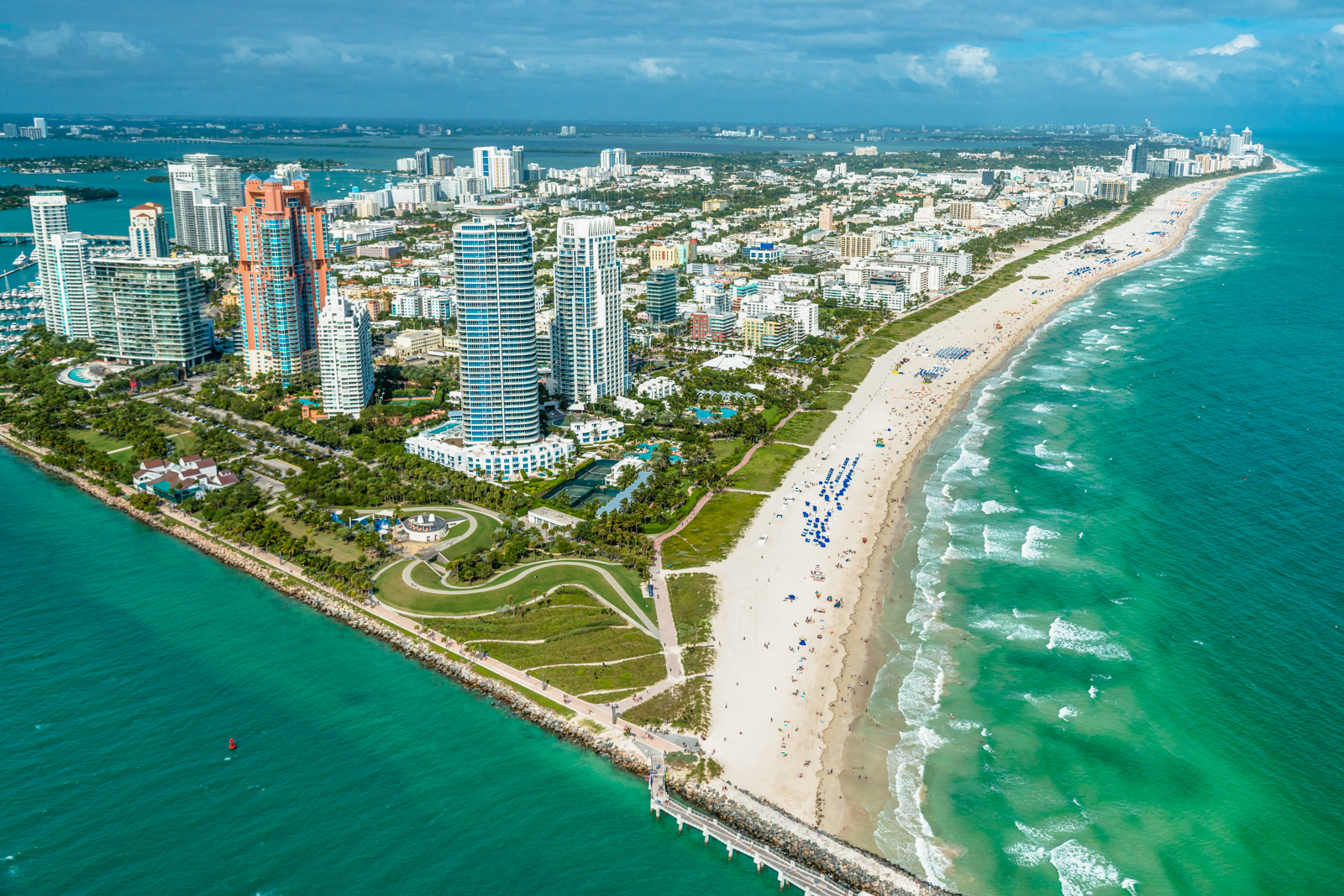
A nation whose cultural DNA has been entrepreneurial for over seven hundred years, Thailand didn’t just suddenly wake up and decide to build a startup ecosystem because it saw Singapore building skyscrapers to the heavens; traders, artisans, inventors, and diplomats, long before “ecosystem” was a word policymakers could spell, have held Thailand as a nexus for ages. From the Ayutthaya Kingdom’s international port in the 14th century to today’s Bangkok fintech scene, Thailand has thrived at the intersection of creativity and commerce. It is a country whose temples might look ancient, but whose people have always been busy inventing the next big thing, centuries before venture capital made it fashionable.
For someone like me, obsessed with how culture and capital collide to create innovation, Thailand is irresistible. While I tell everyone it's near the top of my places I'd like to visit, it's as much for research and to experience the economy and culture, as it is the tourism. It’s a living laboratory of what happens when ancient social systems meet modern entrepreneurial experimentation. This isn’t a place trying to “be the next Silicon Valley,” it’s a place that never stopped being entrepreneurial. The vibrancy of Bangkok alone feels like an economy in constant motion: the street vendors are running micro-logistics operations, the artists are building micro-brands, and the universities are spinning out global talent. What’s magnetic about exploring Thailand isn’t just the potential for venture collaboration or policy reform, it’s seeing, firsthand, a country on the cusp of re-architecting its economy from the ground up. For someone working at the intersection of venture capital, public policy, and startup development, Thailand isn’t just an emerging market, it’s the case study in how cultural infrastructure is economic infrastructure: a truth I’ve been hammering at for years
The Culture of Thai Innovation
Thailand’s innovation stems not from industrial imitation, but from cultural curiosity. Historically, the country’s geography, wedged between China, India, and the sea routes to Europe, turned it into a hub for trade and technology. As early as the Sukhothai period, Thai artisans engineered intricate water systems for rice farming that would make modern hydrologists blush. By the 19th century, under King Mongkut, Thailand became the first Southeast Asian nation to adopt Western scientific education, telegraph systems, and astronomical observatories. This wasn’t mimicry; it was adaptation - entrepreneurship in its purest form: spotting opportunity and seizing it fast.
This spirit remains deeply embedded in the Thai psyche. Whether it’s street vendors who dynamically price mango sticky rice better than Silicon Valley AI, or designers turning upcycled tuk-tuk parts into home décor brands, Thais have been quietly demonstrating the principles of agile iteration for centuries.
Thailand’s record of innovation is often overlooked. Consider, Thailand has long experimented with rice-husk biomass as a renewable fuel; a published 2004 study assessed a 10 MW pilot plant using rice husk feedstock and found most environmental impact potentials were lower than for fossil-fuel plants. Or the creation of Red Bull, the world’s most famous energy drink, co-developed by Thai businessman Chaleo Yoovidhya, whose formula became the backbone of a multi-billion-dollar global brand; now among the most meaningful examples of why “startup” doesn’t mean code and semiconductor but does mean innovation. Bangkok’s Siriraj Hospital performed early dialysis treatments and expanded nephrology rapidly, with the invention of the artificial kidney (dialysis machine).
Thailand’s knack for practical invention (products that solve real problems) explains why the nation is now climbing global innovation indices. In 2024, the Global Innovation Index ranked Thailand 43rd worldwide, ahead of many economies with far larger R&D budgets, driven by strong gains in knowledge diffusion and human capital investment.
The Modern Economy and Macroeconomic Momentum
Thailand’s macroeconomic architecture is uniquely favorable to startups. With a GDP nearing $550 billion USD, it is Southeast Asia’s second-largest economy after Indonesia. The nation boasts a 3.2% growth forecast for 2025, anchored by manufacturing, tourism, and digital services.
The government’s Thailand 4.0 strategy (a 20-year national innovation plan) is the economic scaffolding beneath this transformation. Its goal: shift the country from a “production-based” to a “knowledge-based” economy, emphasizing smart electronics, biotech, fintech, AI, and automation. As part of this, the Board of Investment (BOI) now offers corporate tax exemptions up to 13 years for startups in targeted sectors, and Digital Economy Promotion Agency (depa) grants support ranging from cloud credits to market access for AI and blockchain firms.
The impact has been transformative: the startup ecosystem valuation reached $4.9 billion USD in 2024, with Bangkok, Chiang Mai, and Phuket emerging as key innovation zones.
Thailand’s Startup Development Organizations
If startup ecosystems are the modern temples of innovation, Thailand’s are multiplying fast. Here’s the map:
-
depa (Digital Economy Promotion Agency) - The engine behind Thailand’s digital transformation. Its “Smart City” initiatives in Phuket, Khon Kaen, and Chiang Mai are essentially live labs for mobility, health tech, and AI ventures.
-
NSTDA (National Science and Technology Development Agency) - The apex public R&D institution, partnering with private accelerators to commercialize research.
-
NIA (National Innovation Agency) - The “innovation ministry” of sorts, managing over 1,000 startup grants annually. Its “Startup Thailand” platform connects founders with investors and policymakers.
-
True Digital Park - The country’s largest innovation campus, in Bangkok’s Sukhumvit district, hosting hundreds of startups and corporates, including Huawei, Google, and AWS.
-
SCG Open Innovation Center - Backed by Siam Cement Group, supporting sustainability and industrial tech startups.
-
AIS The StartUp - A corporate accelerator from Thailand’s largest telecom provider, focused on IoT and mobile solutions.
-
RISE Accelerator - A private accelerator known for corporate innovation programs and founder training.
-
TechSauce - Both a media company and a convener, it hosts one of Asia’s top annual startup summits.
-
Bangkok Venture Club and Angel Investor Network Thailand - The most active early-stage angel groups, bridging domestic investors with Southeast Asian syndicates.
 And notably, launching in November, the development of entrepreneurs and idea stage startups through a collaboration with Founder Institute. A unique opportunity for Bangkok-based founders to join a global accelerator program, tailored for early-stage and MVP-level startups, the program combines core startup fundamentals with expert coaching to prepare Thai founders for success in the U.S. market
And notably, launching in November, the development of entrepreneurs and idea stage startups through a collaboration with Founder Institute. A unique opportunity for Bangkok-based founders to join a global accelerator program, tailored for early-stage and MVP-level startups, the program combines core startup fundamentals with expert coaching to prepare Thai founders for success in the U.S. marketThailand’s Venture Funding Landscape
Thailand’s capital markets are evolving fast. The Stock Exchange of Thailand (SET) now operates LiVE Exchange, a specialized board for SMEs and startups that allows fundraising without full IPO compliance (effectively a sandbox for private equity transparency).
Major VC funds include:
-
500 TukTuks (now 500 Southeast Asia) - The Thai arm of 500 Global, investing in over 100 Thai startups since 2015.
-
Beacon Venture Capital - Backed by Kasikornbank, one of Thailand’s most active fintech investors.
-
Krungsri Finnovate - The innovation arm of Bank of Ayudhya, funding fintech and regtech ventures.
-
InVent - From Intouch Holdings, focusing on enterprise SaaS and AI.
-
SeaX Ventures - With a global portfolio, invests in deep tech and healthcare startups linked to Thai founders.
-
SCB 10X - Siam Commercial Bank’s corporate VC, managing over $800M across global funds.
Add to this an emerging angel network driven by successful Thai founders from Flash Express (logistics unicorn), Bitkub (crypto exchange), and Ascend Money (fintech unicorn under CP Group).
Evaluating Thailand in Startup Economic Development
Drawing from The 6 Considerations of Startup Economic Development, Thailand’s progress can be evaluated:
-
A Culture of Competition, Potential, and Creativity
Thailand thrives here. Its entrepreneurial spirit is embedded in everyday life; from family-run street stalls to the rapid scaling of startups like Flash Express and Bitkub. Creativity is part of its national identity, expressed in design, cuisine, and digital art. The challenge is competition: Thai founders often avoid confrontation or bold dissent in professional hierarchies, a cultural trait that can temper the assertiveness needed to disrupt. Still, this is a nation that has turned improvisation into an art form (creativity is Thailand’s native advantage). -
Reasonable Wealth Available
Capital exists, but it’s centralized. Bangkok holds the lion’s share of investment and liquidity, though secondary cities like Chiang Mai and Phuket are gaining traction. Corporate VCs (SCB 10X, Krungsri Finnovate, and Beacon Venture) are the most active, while the government’s BOI incentives and the LiVE Exchange platform broaden access. What’s missing is a thick layer of angel investors and early-stage venture funds that take the first risks, particularly outside the capital. -
Innovative Employers
The country’s legacy conglomerates (CP Group, PTT, SCG) are not just old money; they’re turning into innovation engines in a way other countries should study. Each runs open innovation programs and venture arms, helping bridge academia and startups. Employers are increasingly tech-forward, but Thailand still needs more mid-sized firms operating at the frontier of digital transformation, where talent learns the operational skills that later fuel new startups. -
Little to No Government Interference
Thailand’s government plays an active, but not always light-handed, role. The Digital Economy Promotion Agency (depa) and National Innovation Agency (NIA) are progressive by Southeast Asian standards, offering grants, cloud credits, and startup-friendly tax breaks. Yet bureaucratic drag and corruption concerns persist, particularly around licensing and intellectual property. The trend, however, is improving: the state is shifting from controller to catalyst. -
Access to Startup-Experienced People
This is Thailand’s current inflection point. Until recently, most founders were first-timers, but the past five years have produced repeat entrepreneurs and operators who’ve exited or scaled regionally. Programs like True Digital Park’s “Startup Sandbox” and Founder Institute’s Thailand chapters are now formalizing that mentorship pipeline, turning experience into accessible capital for new founders. -
Credible and Distinct Promotion of the Region
Thailand markets itself as the “Land of Smiles,” but its new narrative is the “Land of Startups.” Initiatives like Startup Thailand and TechSauce Global Summit have put Bangkok on the map, while Chiang Mai’s creative community offers a counterbalance: digital nomads, sustainability ventures, and cultural tech. What’s needed now is global clarity: a unified, data-backed brand of Thai innovation that competes with Singapore’s efficiency and Vietnam’s velocity.
Recent Developments and Global Integration
In 2025, Thailand made global headlines when new digital asset regulations affected Bitkub’s operations, its crypto unicorn, signaling a pragmatic stance on blockchain policy. Meanwhile, Flash Express expanded across ASEAN, demonstrating that Thai startups can scale beyond local borders. The government also approved Thailand Digital Valley Phase II, an innovation district in Chonburi modeled after Singapore’s One-North, expected to host 200 tech companies by 2027.
Thailand’s partnership through Chulalongkorn University, in CU Innovation Hub, with Founder Institute, marks a decisive step in building structured startup infrastructure. It’s past time that we start asking if we could be doing things more effectively and meaningfully for founders. Entrepreneurs aren’t just taking risks, they’re creating culture. The Founder Institute programs will deliver that missing infrastructure: structured founder development, mentor networks, and global investor connectivity. The goal is simple but powerful: help Thailand’s entrepreneurs not only start, but scale, sustainably.
Thailand’s startup story isn’t a Silicon Valley imitation, it’s a rediscovery of its own DNA. The same spirit that built temples without nails, invented the energy drink that fuels global capitalism, and turned local artisans into global brands, is now being harnessed in code and capital. The challenge now isn’t whether Thailand can innovate, it’s whether the world will pay attention to notice that it already has.
The coming decade will prove decisive. With institutional support, global integration through programs like the Founder Institute, and a new generation of investors unafraid of risk, Thailand could soon be known not just as the “Land of Smiles,” but as Southeast Asia’s land of startups.



